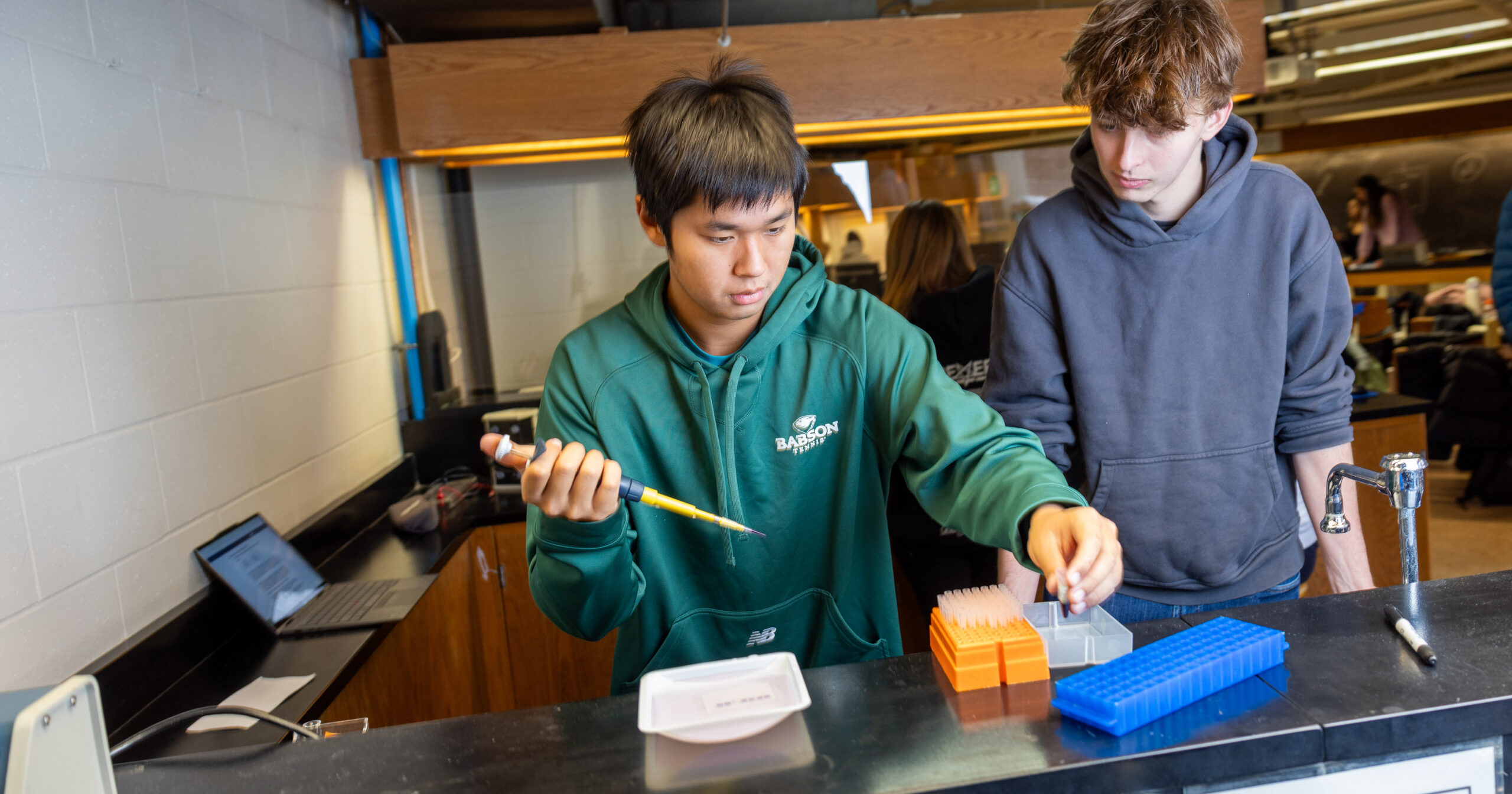Why a Graduate Job Search Is Better with a Team

Looking for a job can be a lonely process. The inevitable setbacks that occur (the botched interviews, the rejections) can seem that much more daunting when there’s no one to commiserate with.
A graduate job search, though, doesn’t have to feel so isolating. What if, instead of trudging through the process by yourself, you had a team behind you going through the very same experiences?
That’s the idea behind the career sprints run by Babson’s Graduate Center for Career Development. Students are organized into teams of about a half a dozen, and they meet online weekly, together with an advisor, to share their ups and downs and discuss strategies for landing jobs and internships.
“Not hearing back from an employer can feel lonely,” says Padraig Duna MBA’21, “but a group of people working together to achieve individual goals—it was almost like career therapy.” Joshua Pozner MBA’20 agrees. “That was the most valuable part of it, the camaraderie, the knowing you’re not going through this alone,” he says.
The career sprints were launched in March. They have been popular, with more than 90 students organized into 18 sprints.
They’ve also proven effective, with participants landing positions despite the tough job market. “It has been such a hit,” says Cheri Paulson, senior director of the Graduate Center for Career Development. “There are many stories of success.”
Accountable to the Team
Lakshita Gupta MBA’21 knows how tough the job market is. She had been hoping to land an internship for the summer. “Finding a summer opportunity during these pandemic times posed many challenges,” she says. The situation took a toll. “The uncertainty due to the pandemic caused a lot of anxiety,” she admits.
Pozner already had put a lot of effort into his job search when the pandemic hit. “All the work I had done fizzled out. I wasn’t having satisfying answers from recruiters. I felt like I was starting from scratch,” he says. “I needed some help.”
More than help with finding opportunities, Pozner wanted to take a look at his skills. Did he have the knowledge that was needed in the marketplace? “I wanted to take a step back and see if I was putting myself in the best position to find employment,” he says.
“Not hearing back from an employer can feel lonely, but a group of people working together to achieve individual goals—it was almost like career therapy.”
Padraig Duna MBA’21
The sprints are able to help with all of these needs and more. Advisors go through a slew of tangible topics with the groups: honing networking pitches, practicing interviewing, finetuning resumes and LinkedIn profiles, assessing skill sets, and reaching out to companies.
Each week, participants were tasked with specific assignments related to their job search, and they then reported on their progress to the group the following week. “In a way, it is an accountability system,” says Alen Mercader MSEL’20. “We are motivated to work on our assignments and tasks because we are accountable to one another.”
Graduate Job Search Successes
In his sprint, Pozner says the group members were uneasy at first, unsure about the economy and what the future held. But, as the weeks went by and as they took critical steps to work on their career paths, the group gained confidence. They fed off each other’s triumphs, both big and small. “The mood definitely improved,” he says. “Sharing success stories helped everybody.”
Participants in the sprints definitely have many successes to share. Mercader accepted a post-grad fellowship, and Pozner landed an internship with Dronegenuity, a drone services company founded by Dan Edmonson MBA’15. Dronegenuity has offered positions to many Babson graduate students, including Erik Steiner MBA’20.
Duna and Gupta also landed internships. “Joining the career sprints was one of the most valuable experiences I’ve had at Babson so far,” says Gupta. “I landed my dream internship with a great startup in Boston.”
Posted in Community




